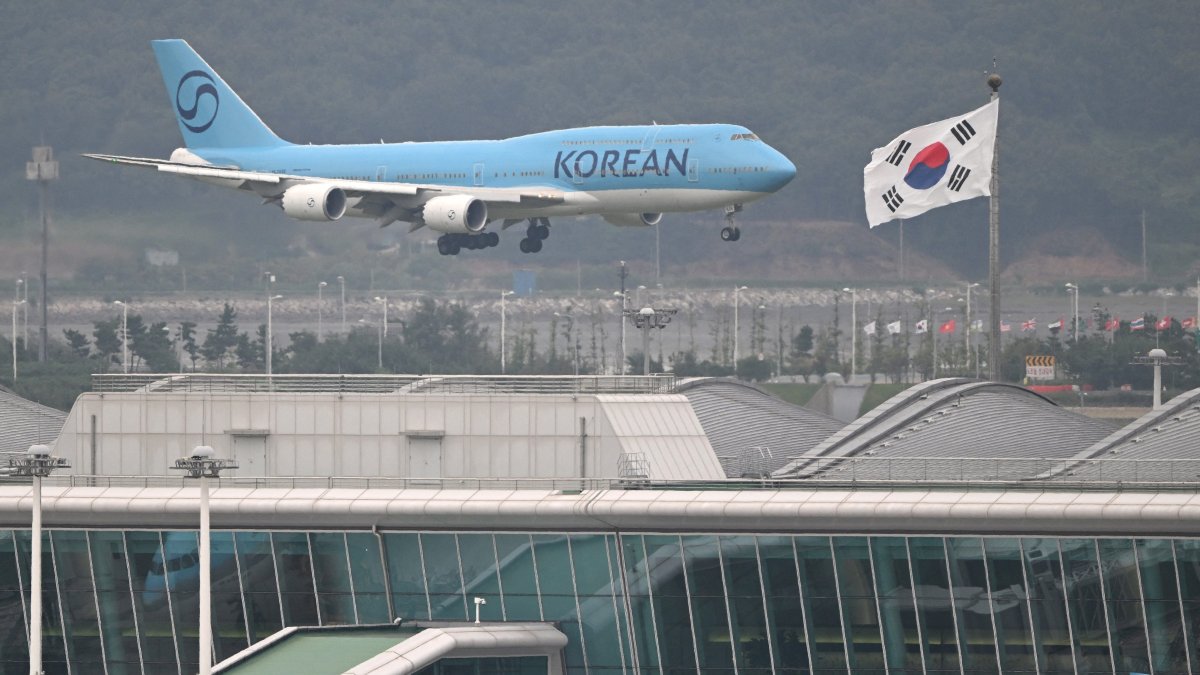Are South Koreans Returning Home After U.S. Immigration Raid?

Published: 2025-09-12 07:28:52 | Category: policy GNEWS Search
On 4 September 2023, a significant U.S. immigration raid at a Hyundai facility in Georgia led to the detention of over 475 individuals, primarily South Korean workers. This event has raised serious concerns about business relations and immigration practices, ultimately impacting South Korea's investments in the U.S. After a week of uncertainty, the detained workers returned home, but the fallout continues to affect diplomatic ties.
Last updated: 06 October 2023 (BST)
Key Takeaways
- 307 South Koreans were detained in a U.S. immigration raid at a Hyundai facility.
- The raid has raised concerns over U.S.-South Korea business relations.
- South Korean officials chartered a flight for the workers' return.
- Hyundai and LG Energy Solution's $4.3 billion battery plant project faces delays.
- Ongoing tensions may affect future South Korean investments in the U.S.
The Immigration Raid: A Brief Overview
On 4 September 2023, U.S. immigration officials conducted a raid at a Hyundai facility in Georgia. This operation resulted in the detention of 475 individuals, including 317 South Koreans — 307 men and 10 women. The officials were reportedly investigating allegations of unlawful employment practices. The circumstances surrounding the raid shocked many in South Korea, particularly as images emerged showing their compatriots in shackles.
Repatriation of Detained Workers
After enduring a week in detention, the workers were finally repatriated on a chartered Korean Air flight that landed at Incheon International Airport. The South Korean government had advocated for their swift return, emphasizing the need to address their welfare following the ordeal. The flight also carried 14 employees from other South Korean companies operating in the region.
Public Reaction in South Korea
Upon returning, the workers were met with a mixture of applause and protest. Many citizens expressed outrage over the treatment of their compatriots, questioning the implications this incident might have on future investments in the U.S. Protesters at the airport displayed signs and banners, showcasing their discontent with the situation and emphasising national pride.
Implications for U.S.-South Korea Relations
This incident has cast a shadow over the historically strong ties between the U.S. and South Korea. With South Korea pledging substantial investments in the U.S. — including a reported £26 billion from Hyundai — the raid raises questions about the reliability of the American market for South Korean businesses.
Concerns Over Investment Climate
South Korean President Lee Jae Myung highlighted that the raid could deter companies from investing in the U.S., as it suggests a risk of potential detention for workers involved in essential projects. This sentiment is echoed among business leaders, who worry that the incident may discourage foreign direct investment.
The Broader Context of Immigration Policy
The crackdown on South Korean workers has sparked debate over the clarity and enforcement of U.S. immigration policies, especially regarding temporary work visas commonly used for business purposes. Experts note that while it is standard for international professionals to set up operations in the U.S., the sudden enforcement of immigration laws raises concerns about the stability and predictability of the business environment.
Legal and Procedural Uncertainties
Many of the detained workers were in the U.S. under various short-term visa programs, making their detentions even more perplexing. Critics argue that the Trump administration's abrupt actions signal a shift in immigration enforcement that could have lasting implications for international workers.
Impact on Current Projects
The raid has also delayed the construction of a £4.3 billion electric vehicle battery plant being developed by Hyundai and LG Energy Solution in Ellabell, Georgia. This facility is expected to create approximately 8,500 jobs in the U.S., further emphasising the importance of the business relationship between the two nations.
Statements from Companies Involved
In response to the situation, LG Energy Solution issued an apology to the affected workers and expressed gratitude to the South Korean government for their efforts in securing their release. The company acknowledged the distress faced by those detained and pledged to ensure that there would be no repercussions for their return.
Future Considerations for South Korean Companies
The ramifications of this incident may extend beyond immediate concerns for the workers. South Korean companies contemplating investments in the U.S. could now factor in the potential risks of immigration enforcement into their decision-making processes. Such considerations could lead to a reevaluation of strategic partnerships and investments in the American market.
Ongoing Detention of Other Workers
While the South Korean workers have been repatriated, reports indicate that about 145 individuals from other countries remain in detention following the raid. Advocacy groups are calling for their release, highlighting the precarious situation faced by foreign workers in the U.S. and emphasising the need for responsible corporate practices regarding visa sponsorship.
Conclusion: A Call for Change
The recent immigration raid at the Hyundai facility has underscored the fragile nature of international relations and the complexities of immigration policy. As South Korea and the U.S. navigate the aftermath, there is a pressing need for dialogue and reassessment of practices that impact foreign workers and investments. The incident serves as a reminder of the importance of protecting the rights and dignity of workers in an increasingly globalised economy.
What measures do you think should be taken to improve the situation for foreign workers in the U.S.? #SouthKorea #USRelations #ImmigrationPolicy
FAQs
What led to the U.S. immigration raid on South Korean workers?
The raid was conducted by U.S. immigration officials investigating allegations of unlawful employment practices at a Hyundai facility in Georgia.
How many South Korean workers were detained in the raid?
In total, 317 South Koreans were detained, including 307 men and 10 women, during the immigration raid.
What has been the response from South Korean officials?
South Korean officials have expressed outrage and concern over the treatment of their citizens, advocating for their swift return and addressing the potential impact on business relations.
What is the significance of the Hyundai-LG battery plant project?
The £4.3 billion electric vehicle battery plant is crucial for job creation in the U.S. and represents significant South Korean investments, making the recent incident particularly concerning.
What are the ongoing concerns regarding other detained workers?
About 145 workers from various countries remain detained, prompting calls from advocacy groups for their immediate release and highlighting the precarious situation for foreign workers in the U.S.



